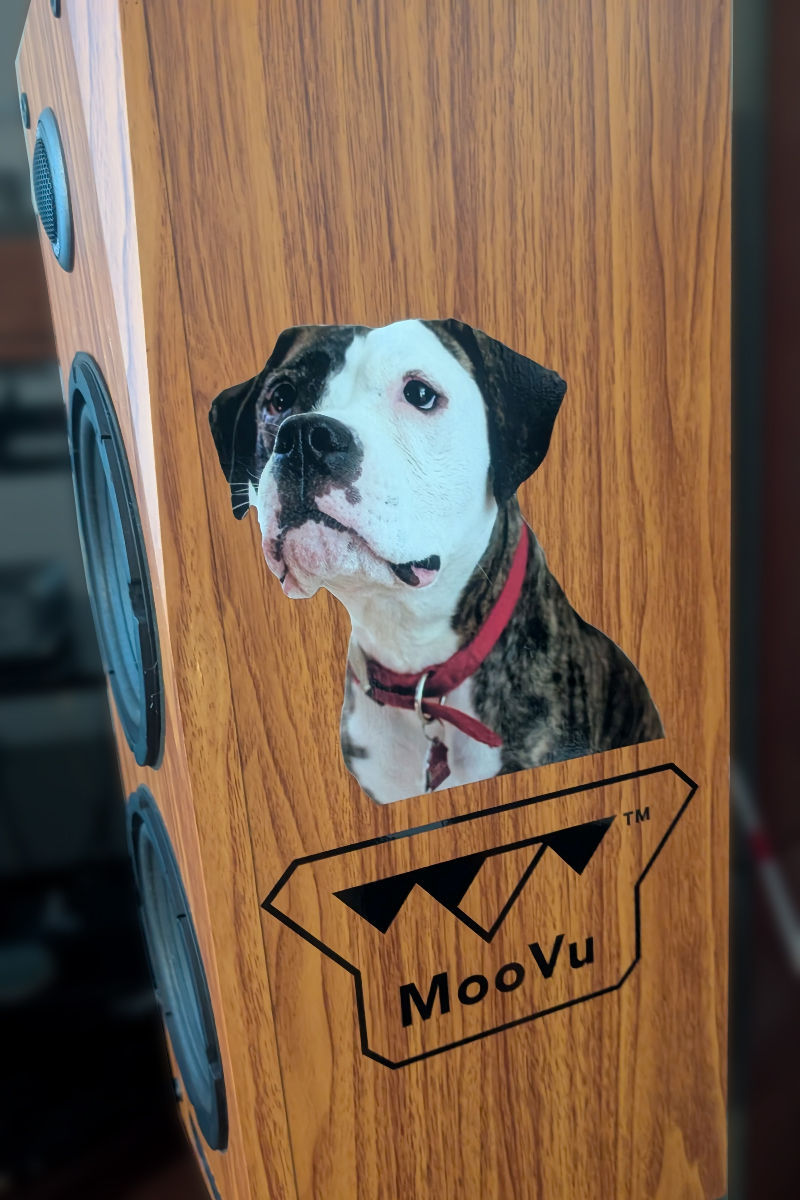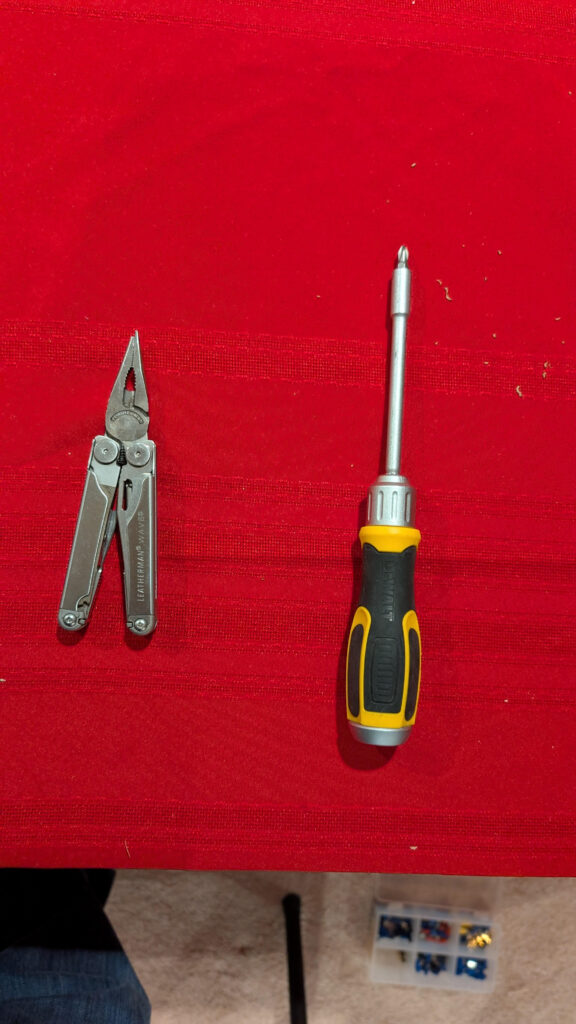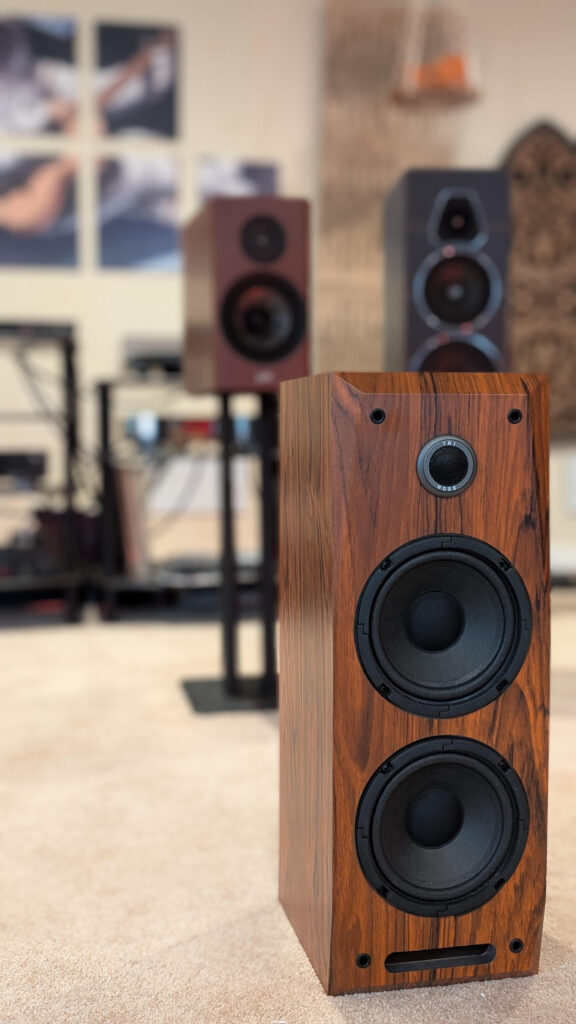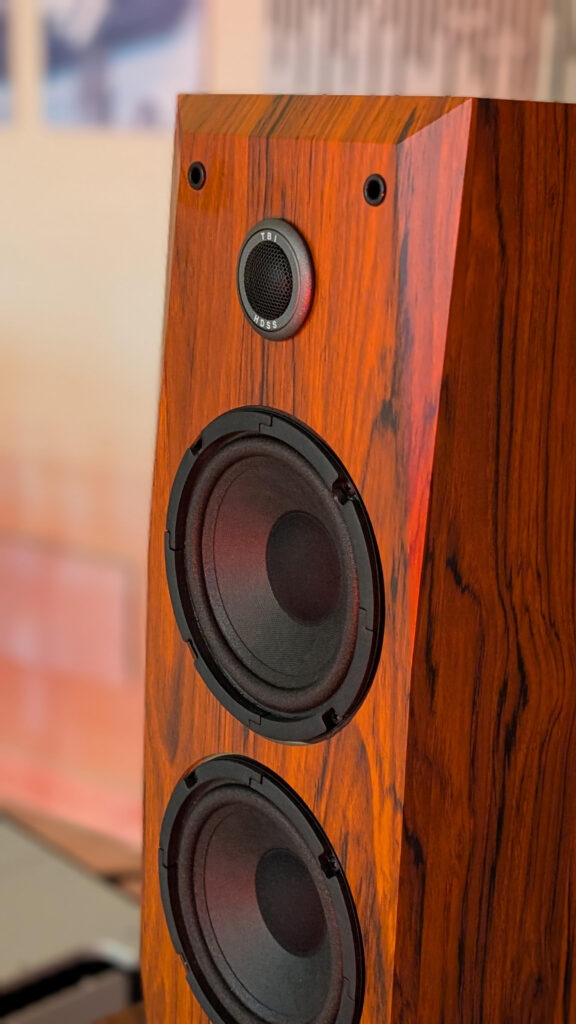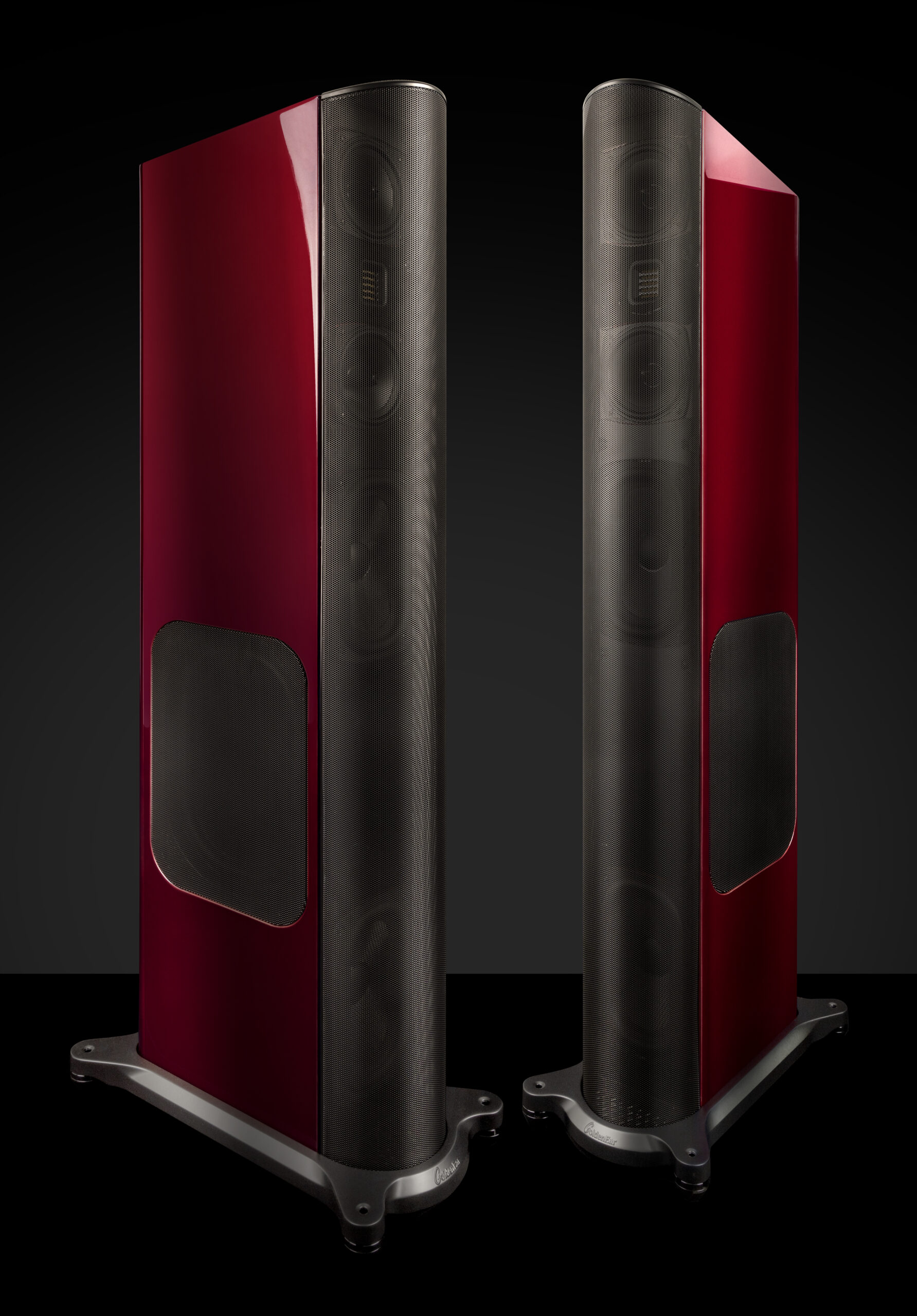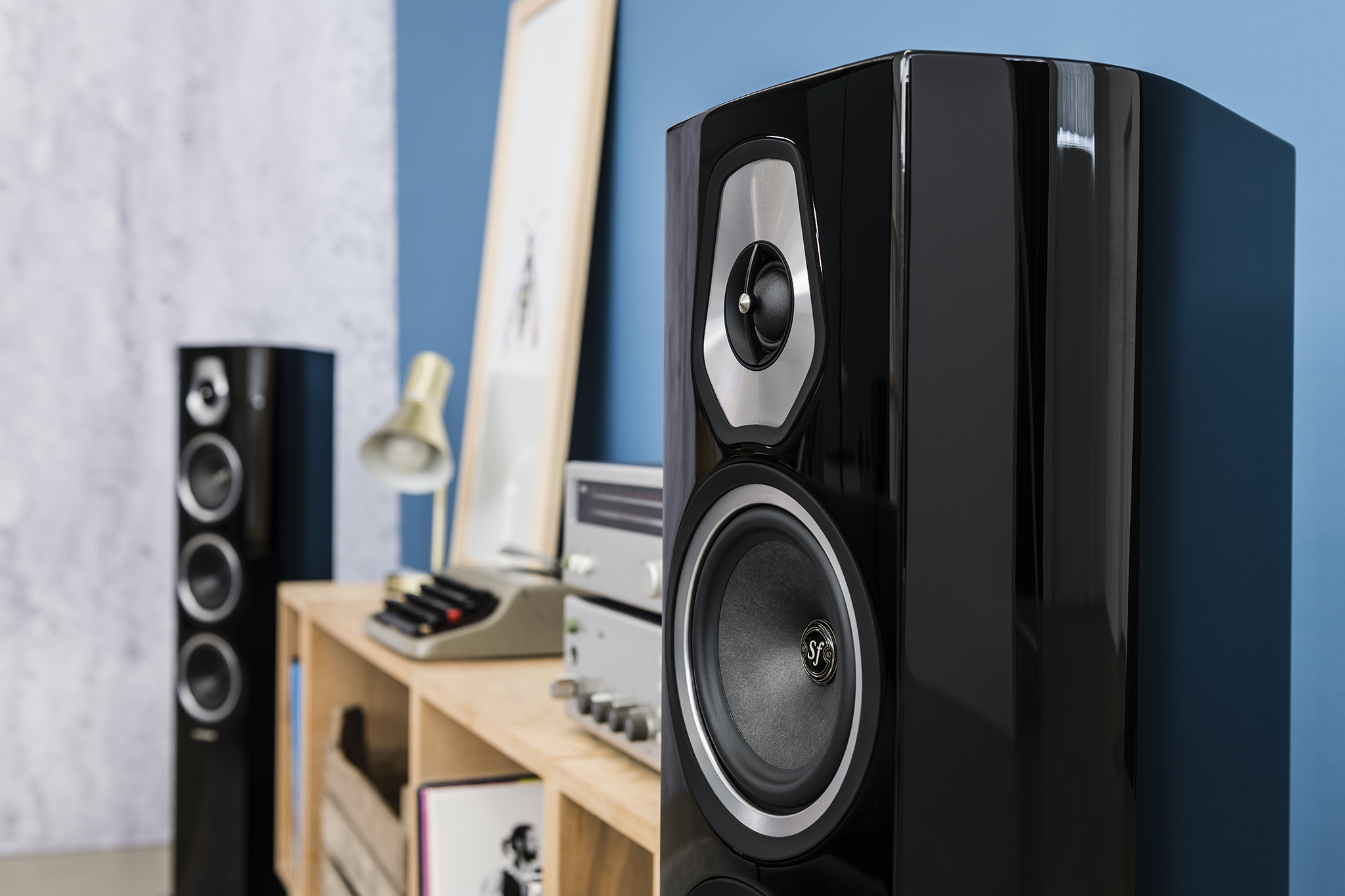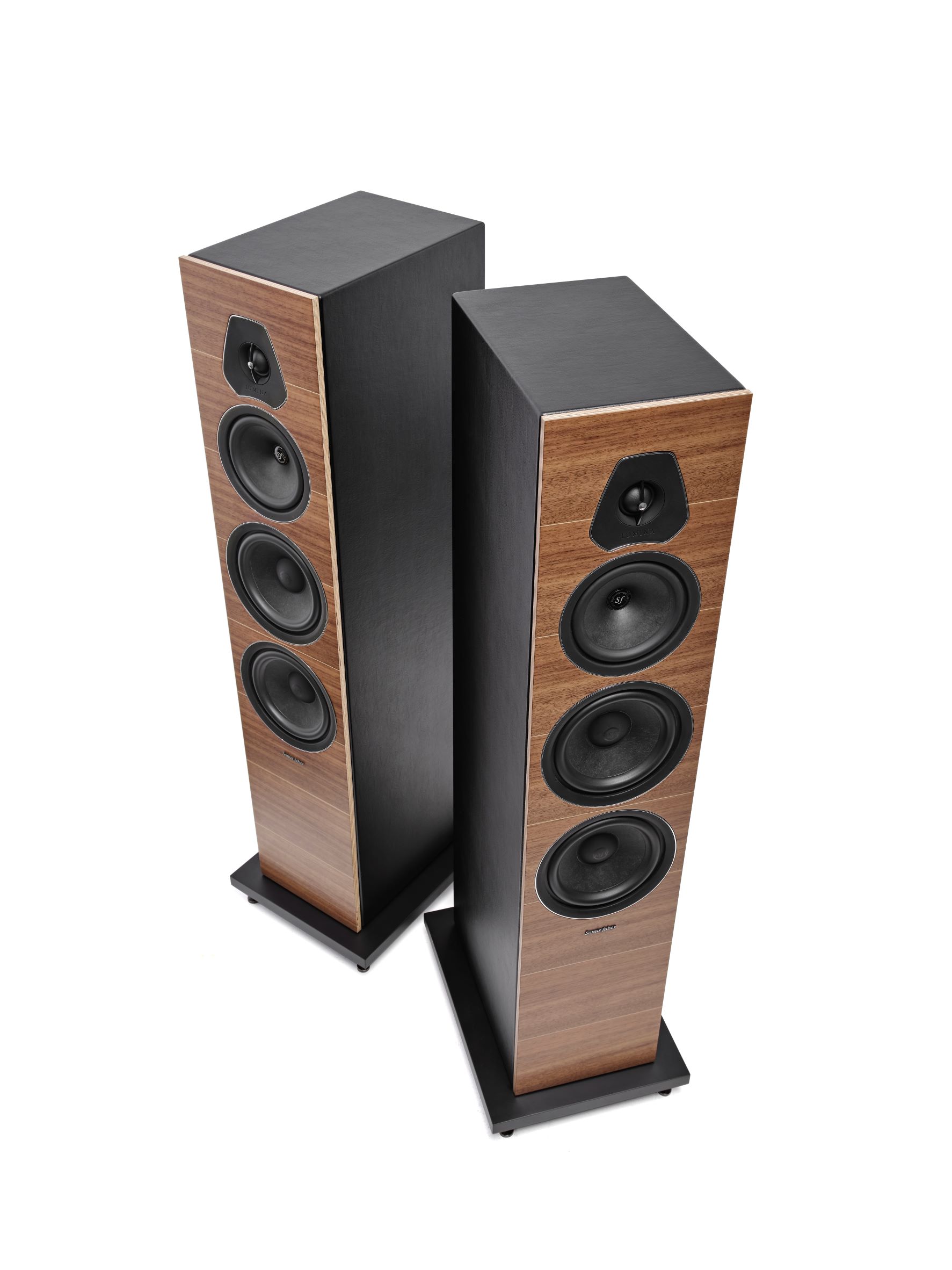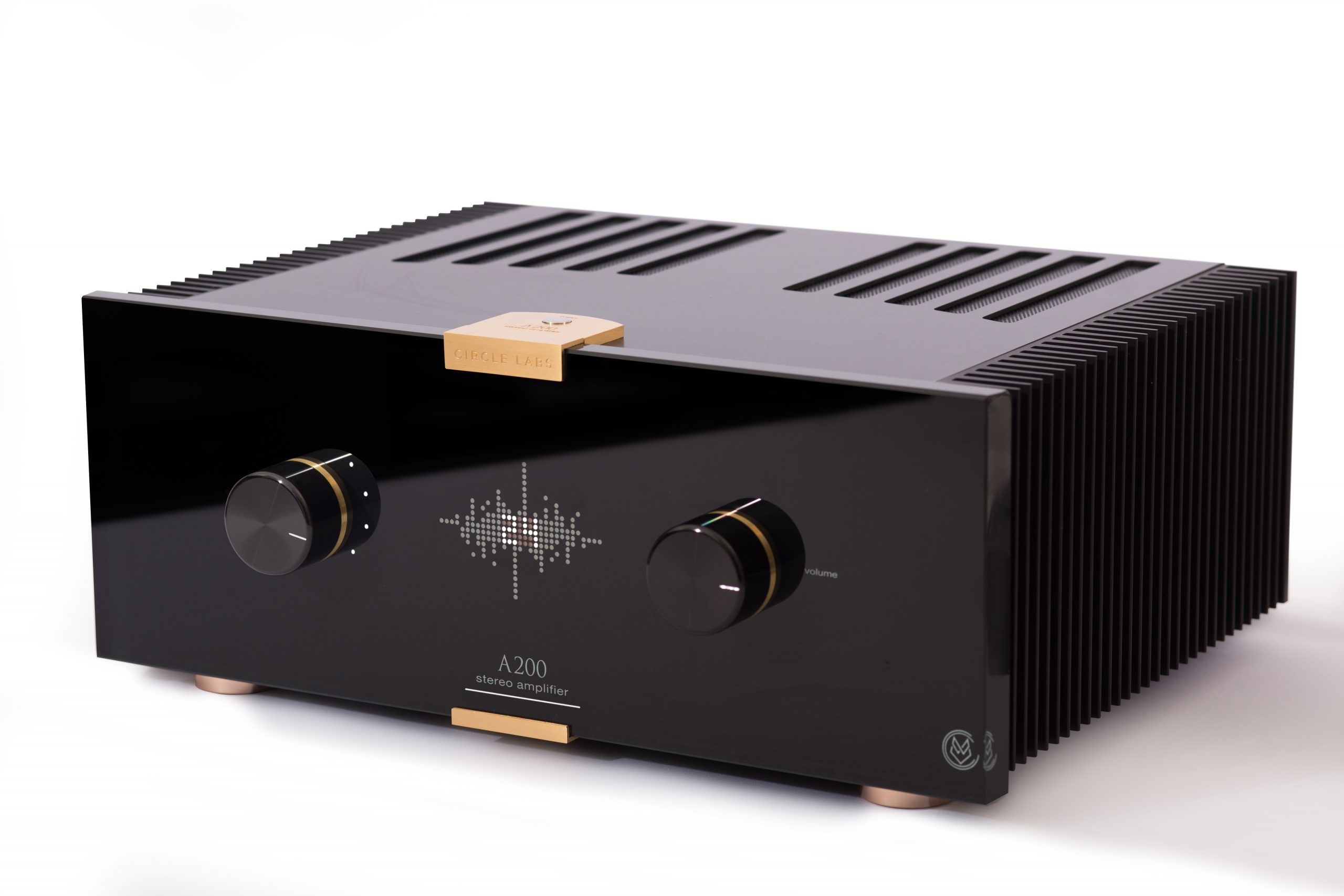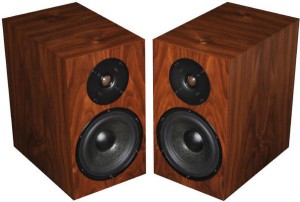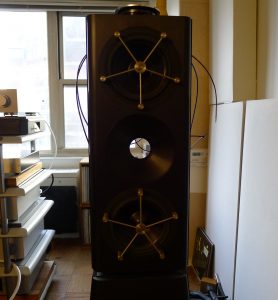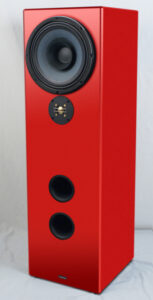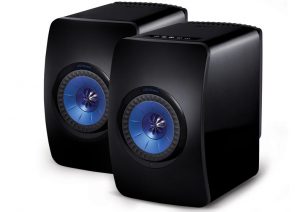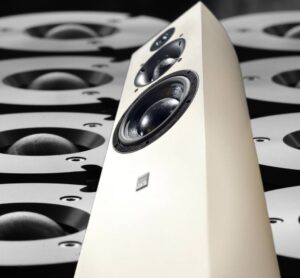Somewhere between the impassioned corporate overlords of large audio conglomerates and the overly passionate do-it-yourselfer lies a middle ground of small-to-medium audio companies. Many of these middle ground overachievers carve their niche by offering products that combine the value of the big brands with esoteric-like perfection in everything they build. Or in this case, you build! We will get to that soon enough. But first here enters Gingko Audio, who has been quietly controlling vibration with their award-winning products since the year 2000. With Gingko's specialty in vibration, it was a natural path for the company to begin making fantastic loudspeakers. Let us not forget at their core loudspeakers are little more than vibration machines.
Vinh Vu, the mastermind behind Gingko Audio, has noticed something many of us music lovers have: The indifference of young blood toward the audio hobby. We can discuss this topic for hours, like many do, but while we jaw at the problem Vinh has done his part to help with a solution. Gingko has released the MooVu, a do-it-yourself (DIY) loudspeaker kit that offers some of the best components used in Gingko's decorated Sextet modular loudspeaker system for nearly 10 times less of an out-of-pocket commitment. Silly name I know, however this loudspeaker was named after Vinh's grand puppy Monkey, affectionately known in his family as "Moo." No fancy tools required, no cabinet work, just assemble the MooVu and the result is a truly sophisticated loudspeaker with scalable resolution and unheard-of value. That is the goal, anyway, of this $800-ish (introductory price, more to come on the "ish") loudspeaker kit. I could not resist such a temptation when Ye Ole Editor asked me to take on this build-and-listen evaluation and share what I find with the community. The results are worth a long-form explanation, so here goes.
The family member MooVu was aptly named after…
Assembly of the MooVu Loudspeaker Kit
It has been 30 years since I assembled my first loudspeaker. I will not bore you with that story, however I have been designing and building custom loudspeakers ever since. Offering a loudspeaker kit to the masses is not an easy business model. Offering a kit that anyone, regardless of skill level, can assemble and to have the kit remain affordable is akin to climbing a mountain. As I began my journey into the MooVu, the simplicity of how this loudspeaker is assembled was the first place I began to think the MooVu was something special. Much of the simplistic assembly process comes from the carefully curated parts that make-up the MooVu. The parts are sourced from all over the world, and part of the adventure the MooVu offers is procuring them for yourself.
Gingko partnered with an OEM loudspeaker company from China named Iwistao that will ship a pair of the MooVu's custom cabinets directly to your door in about two weeks for around less than $350. This is where the "ish" in the MooVu's price I mentioned earlier becomes relevant. Due to the current state of the world economy, the tariffs on the cabinets cause some small price variation because they ship directly from China. I was more frustrated by the unboxing of the MooVu's cabinets than the tariffs since the cabinets were packaged so well. I found them difficult to break free from their packaging material prison. I chose the Jujube wood finish that is a handsome vinyl wrap over a modest medium density fiberboard cabinet structure. The Iwistao cabinets remove nearly all the complexity of the MooVu build since the cabinetry is, and will always remain, the most complex and costly part of any loudspeaker.
Once the MooVu cabinets are purchased, the next step is to purchase the rest of the guts from Gingko. The MooVu Kit's MSRP is $499 and it arrives labeled well with everything one needs except for basic hand tools and a drill to make the woofer screw holes into the Iwistao cabinets. The drill can be optional if you can start the included wood screws with a screwdriver and a little elbow grease. Assembling the MooVu as if I were a beginner was extremely important to the experience I am sharing here, so I decided to use what an aspiring music lover may be able to cobble together in a college dorm: A broken multi-tool and a screwdriver. Gingko provides a detailed list of tools they recommend in the easy-to-follow instructions found on their website (HERE). I will hang out here while you click the link and take a read through them. Gingko did a fine job documenting the build process and I will save you the pain of regurgitating the assembly instructions here.
It was possible to assemble the MooVu with the simplest of tools.
Welcome back! The second place I saw the MooVu may turn out to be something special was in the quality of the internal parts. The woofers are custom made by Foster Electric who are famous for their high-end OEM Fostex loudspeaker drivers. The woofers look a little simple at first glance with their paper cone, foam surround, and stamped basket assembly, however the large motor/magnet structure and vented magnet indicated there is more complexity to these woofers than meets the untrained eye. When I got to the tweeters, they were a total enigma to me. Who is TBI? Where are the Scan-Speak tweeters? The Seas tweeters? Or any other Hi-Fi loudspeaker OEM tweeter? A tweeter from the car audio world is really the best Gingko Audio can do for the MooVu? When I began to research these soft dome tweeters that carry an MSRP of $200 on their own, I began to get excited and understood here is where Gingko's years of experience bear fruit. The TBI tweeters have sophisticated chambering to control the rear waves that come off the tweeter dome along with a wide dispersion design. Both attributes are tell-tale signs of high-quality tweeters. The remaining hardware was all of quality too. Thick 16AWG OFC copper wiring, a crossover with high quality polypropylene capacitors and air-core bobbin wound inductors, and even anti-vibration gaskets for the woofer are included. Gingko seemed to understand the MooVu will bare all. They had nowhere to hide poor quality components since the end user will have a rare glimpse inside what makes the MooVu groove. Since this is a unique evaluation of an even more unique loudspeaker experience, I decided to make an unboxing video of the MooVu components that can be found on YouTube (HERE).
Assembling the MooVu was truly simple. My broken multi-tool and screwdriver was all I needed and the whole process took me on the long side of a half-hour. I would estimate a beginner may need one to two hours to assemble the MooVu. I did decide to use a layer of 3M electrical tape around the tweeters to press-fit them tightly into place instead of gluing in the tweeter as recommended. Otherwise, I adhered closely to the script. I went the route of a tight press-fit because I may eventually tinker with the MooVu design. If it is any hint as to how the remainder of this evaluation will go, I decided to purchase the pair of MooVu's I built. I am happy I do not have more to report in the sense of difficulty, and even more thrilled Gingko has done the audio hobby the favor of bringing what may very well be the first loudspeaker kit that anyone, at any skill level, can enjoy the process of creating.
The MooVu Loudspeaker Kit Sings!
Once assembled the MooVu is a hefty, medium-sized loudspeaker. This means a 20-inch pair of stands will get the tweeter to the correct height. As I adorned the MooVu's quality binding posts with Audioquest Robin Hood loudspeaker cables I giggled at the thought of testing a sub-kilobuck loudspeaker kit with my reference system of all Bricasti design electronics and a Rega P6 turntable/SPL phonostage combo. I was clearly setting the MooVu up to win or fail and nothing in-between. Gingko does not provide much information regarding the measured performance of the MooVu other than they are an 8 Ohm nominal speaker. When I started my journey with the MooVu I had intended to break out the measurement rig, however once I listened to the MooVu (always listen first, I cranked various colors of noise through the MooVu for 24 hours to break them in. In reflection of how I would capture their value with so little data, I struggled a bit with how to portray the MooVu in a meaningful way. The price can range from the current price of approximately $800 to a fully assembled pair for $2499. Thank goodness loudspeaker break-in is a good time to brainstorm.
I decided to frame the value of the MooVu by comparing them to my $1299 per pair Polk Audio Reserve R200 Anniversary Edition (RSae) loudspeakers, and my $3000 per pair first generation Sonus faber Lumina V loudspeakers. Both fantastic loudspeakers have found a spot in my home thanks to the exceptional value they represent by portraying the music I love in a refined, sophisticated manner. Starting with the MooVu, I knew from the first few haunting vocals of Noah Kahan's track "Growing Sideways" the MooVu was an exceptional loudspeaker. Kahan's voice, which seems a little forward in his mouth, had tremendous resolution, harmonic quality and micro-dynamic inflection. In other words, the MooVu was bringing Kahan, and his message into the room with me. The guitar was very well resolved while maintaining its full body, and the integration of the tweeter and woofer were seamless. I found the chorus in the background to be wall-to-wall large, thanks to the MooVu's wide imaging. The Polk RSae did not hang with the MooVu in terms of inner detail and micro-dynamics, but matched them in soundstage. The Lumina V were wholly more refined, but not as dynamic as the MooVu. For this track the MooVu fared extremely well at their kit price and perform well above the $800 investment. I still needed more listening time to understand if their assembled price held the same value as I was finding in the kit price.
The MooVu has some serious competition for this evaluation!
After several more hours of listening on the MooVu the next track that gave me pause, and motivated me to again swap loudspeakers around my system, was Ray Brown's chill version of "Take the 'A' Train" cut from the audiophile favorite album Soular Energy. This jazz trio track is where all my doubts around the TBI car audio tweeter used in the MooVu were eliminated. The MooVu has some of the finest quality cymbal reproduction I have heard on any loudspeaker. Sure, I have heard higher resolution tweeters, but the TBI possesses a very natural and effortlessly extended top-end that is near ribbon-like in its quality. The resolution was apparent in the upper midrange as well. The piano harmonics, and little dynamic changes were sorted out in a meaningful way that showed the magic of the Ray Brown Trio. Again, I found the dynamics were fast and resolved. In the lower midrange there was a hint of boxiness coming from the cabinets. The likely cause is the lack of bracing in the Iwistao cabinets, however that is an educated guess since I did not break out the measurement rig. The boxiness was not enough to be a distraction or color the sound to any unlistenable point, but it was enough to be reminded the MooVu is built on curated value and not relentless refinement. In terms of refinement, I found the Lumina V to excel and out-class the MooVu. The MooVu was not out of the fight, however, and had better dynamics and texture in the mid-bass frequencies of Brown's upright bass. The Polk RSae has deeper bass than the MooVu, but while listening I found myself preferring the MooVu's sealed-like bass quality that brought just a hint of high-end vintage to the music. The MooVu are the only ported loudspeakers I have heard to date that are able to maintain the taut quality of a sealed enclosure. I found the bass quality to come at the cost of extended deep bass response; however, for me it is worth the sacrifice to achieve quality low-frequency resolution.
While "Growing Sideways" and "Take the 'A' Train" helped me get intimate with the MooVu, it was high time to add something a little more up-beat to the musical mix. Macklemore features Ed Sheeran in a very heart-felt track as a message to his children called "Growing Up." This R&B track is on Macklemore's album This Unruly Mess I've Made. "Growing Up" is a bass-heavy track born from a bass guitar over a back beat groove on the drums. The MooVu was taut and punchy, maintaining the integrity of the instruments laying down the thunderous beat. Once again the tonality of the MooVu's bass was reminiscent of a sealed loudspeaker enclosure. The extension on both the Polk RSae and the Lumina V was welcome on this track, though both competitors did not preserve the harmonic resonance on the bass guitar quite as well as the MooVu. Macklemore's poignant lyrical style which includes sharp inflections, held words, and volume changes was not lost on the MooVu. Both the genuineness and musicality Macklemore portrays was translated to me thanks to the Moovu's smooth yet resolving midrange. The capability of the MooVu through the midrange was again an example of where the MooVu was a more capable loudspeaker than the Polk RSae, and held its own against the more expensive Lumina V. There is a haunting female choir that resides in "Growing Up's" chorus. During the chorus, the MooVu's hint of boxiness to the sound showed up. Like its effect during "Take the 'A' Train," the boxiness was neither distracting or detracting to the truly high fidelity picture the MooVu paints. Speaking of high fidelity, during the grand finish of "Growing Up," the trumpet solo was an absolute hoot on the MooVu. The trumpet was dynamic and present in the room with a deep integrity that paid homage to the king of brass instruments. At no point did the trumpet become offensive or glaring. "Growing Up" is a fun and meaningful track and once complete on the MooVu, I felt the track's message which is no small feat that some other, vehicle-priced loudspeakers have failed to do for me.
Time to Wrap Up the MooVu Loudspeaker Kit…
I am unsure I remember the last time a product was brought to the audio market in kit form that became super relevant. Perhaps the Dynaco Stereo 70 amplifier? Regardless of my conundrum, I can see the MooVu loudspeaker kit becoming very relevant thanks to its smart curation by Gingko Audio, good looks, and high-value fidelity. I will be using the MooVu "moo-ving" forward to fill the fidelity gap between my Polk Audio Reserve R200 Anniversary Edition and Sonus faber Lumina V. The MooVu sits well between these two loudspeakers that are exceptional values at their respective price points and have become references for me. They represent sophisticated, high-quality sound that transcends their price and are the kind of loudspeakers the MooVu deserves to be associated with. Regardless of an occasional hint of boxiness to the sound, I found the MooVu's fidelity far closer to the Lumina V than the Polk Reserve R200. Here is where things get sticky: At $800 per pair the MooVu is a steal everyone should be adding to their main system as their primary loudspeakers, a second system, or to use as audio sorbet now and again simply based on their raw value for your money. At $2495 per pair fully assembled, the MooVu will begin to have some serious competition. While the MooVu remains a very good value anyone would be fortunate enough to have in their system in their fully assembled form, the MooVu could get a little lost in the mix of exceptional $2500-$3500 per pair loudspeakers. There is a third option which is to have your MooVu built by a MooVu ambassador. The ambassadors are vetted loudspeaker experts Gingko has approved to assemble the kit for those who may not desire to. The price varies, but is far less than buying a complete MooVu from Ginko themselves. Contact Gingko for more details. So goes the options and challenges of offering a unique product.
I started building loudspeakers because I found a deep love for music at an early age. I had to build my own. I could not afford a $5000 pair of loudspeakers even though I would make weekly visits to the local Hi-Fi shop just for a longing taste. It is very meaningful that as a kit, the MooVu is reachable, understandable, and a true high-fidelity loudspeaker that captures the essence of what deep listening and musical enjoyment is about. Is there truly any other quality one requires in a loudspeaker? I think not.
No AI was used in the writing of this article…
MooVu Loudspeaker
Retail: $800 per pair (kit)
Retail: $2495 per pair (fully assembled)
Gingko Audio, Inc.
8 Nicklaus Lane
Farmingdale , NJ 07727
732.946.9439





